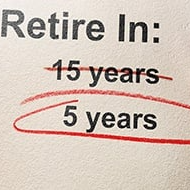Understanding the FERS Annuity Supplement

The special retirement supplement, often referred to as the annuity supplement, is one of the perks of retirement that could be better understood. Many retirees and those getting close to retirement have heard of it, but they know very little about it.
As a result, they may inadvertently incorporate it into their retirement planning even though they are not eligible, or they may fail to consider it even though they are eligible.
Qualifications
Only certain FERS retirees, but not CSRS retirees, are eligible for the supplement. These retirees must have retired on an immediate annuity that was not reduced for age, have retired involuntarily before reaching the minimum retirement age (from 55 to 57 years old, depending on the year of birth), or have retired voluntarily due to a significant reorganization, reduction in force, or early retirement.
Exceptions
The supplement is not available to CSRS retirees. The payment is only made once the recipient reaches the mandatory retirement age, with one exception: individuals who fall into the first group retiring on an instant annuity that is not lowered for the period.
The supplement stands in for the payment you would get from the Social Security Administration as a result of your FERS service. It is computed in the same manner as if you were qualified to receive SSA benefits on the day that you retired.
Eligibility
The eligibility period will continue until the earlier of the last day of the month before the first month, for which you would be entitled to actual Social Security benefits or the last day of the month in which you reach the age of 62. The earlier of these two dates will determine whether or not you are eligible for benefits.
When determining whether or not you are eligible for the supplement, it is assumed that you have reached the age of 62 and are fully insured for a Social Security payment.
OPM will calculate your potential full-career (40-year) benefit from Social Security. After that, it determines how much time you spent working as a civilian under FERS and adjusts the amount of the expected full-career Social Security payout to account for it.
If you had worked 30 years under FERS, for instance, and your estimated entire career Social Security benefit was going to be $1,000, it would divide 30 by 40 (0.75). Then it would multiply that result by your estimated whole career Social Security benefit ($1,000 x 0.75 = $750).
Bottom Line
The essential FERS benefit is not considered earnings, so any reduction caused by the earnings test will not impact the critical benefit.
On the other hand, the supplement is subject to a Social Security earnings test, which can reduce or even eliminate the use if you have sufficient earnings from other sources. In addition, the supplement has no yearly increment to account for inflation.
Contact Information:
Email: [email protected]
Phone: 7242723902
Popular posts

Maximizing Your Social Security...
Maximizing Your Social Security...

Avoid Making These Federal...
Several things could ruin...
Free Retirement Benefits Analysis
Federal Retirement benefits are complex. Not having all of the right answers can cost you thousands of dollars a year in lost retirement income. Don’t risk going it alone. Request your complimentary benefit analysis today. Get more from your benefits.
I want more



